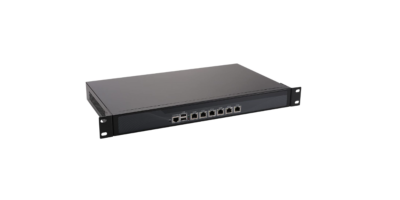In today’s rapidly evolving regulatory landscape, businesses across various industries are under increasing pressure to ensure compliance with a myriad of laws, regulations, and standards. Failure to comply with these requirements can result in hefty fines, legal consequences, and damage to reputation. To navigate this complex terrain effectively, organizations rely on Compliance Management Systems (CMS). But what exactly is a Compliance Management System, and why is it crucial for businesses? Let’s delve deeper into this topic to gain a comprehensive understanding.
What is a Compliance Management System?
CMS refers to the framework, processes, and practices implemented by organizations to ensure adherence to legal and regulatory requirements. It encompasses a systematic approach to identifying, assessing, monitoring, and mitigating compliance risks while promoting a culture of ethical behavior and accountability within the organization.
Key Components of a Compliance Management System
1. Policy and Procedures Development
The foundation of any CMS lies in the formulation of comprehensive policies and procedures that outline the organization’s commitment to compliance. These documents should clearly articulate the regulatory requirements applicable to the business and establish guidelines for employees to follow. Regular reviews and updates are essential to ensure alignment with evolving laws and industry standards.
2. Risk Assessment and Analysis
Conducting thorough risk assessments is essential for identifying potential compliance risks associated with the organization’s operations, processes, products, and services. This involves evaluating various factors such as regulatory changes, industry trends, business activities, and external influences. By understanding the nature and magnitude of compliance risks, organizations can prioritize their efforts and allocate resources effectively.
3. Compliance Training and Education
Educating employees about compliance obligations and fostering awareness of ethical standards is critical for the success of a CMS. Training programs should be tailored to different roles within the organization and cover topics such as regulatory requirements, company policies, reporting procedures, and ethical decision-making. Ongoing training ensures that employees stay informed and empowered to fulfill their compliance responsibilities.
4. Monitoring and Surveillance
Continuous monitoring and surveillance mechanisms are essential for detecting potential compliance violations in a timely manner. This may involve the use of technology-driven solutions such as automated monitoring tools, data analytics, and surveillance systems. Regular audits and reviews help evaluate the effectiveness of controls, identify areas of non-compliance, and initiate corrective actions as needed.
5. Incident Management and Reporting
Establishing robust incident management procedures enables organizations to promptly address compliance breaches and mitigate their impact. Employees should have clear channels for reporting suspected violations, whistleblowing mechanisms, and procedures for investigating complaints. Timely response and escalation protocols ensure that compliance issues are addressed promptly and appropriately.
6. Documentation and Recordkeeping
Maintaining accurate and comprehensive documentation is essential for demonstrating compliance efforts and facilitating regulatory audits or inquiries. This includes keeping records of policies, procedures, training activities, risk assessments, incident reports, and remediation efforts. Centralized repositories and document management systems streamline access and retrieval of information when needed.
7. Internal Controls and Remediation
Implementing effective internal controls helps mitigate compliance risks by establishing checks and balances throughout the organization. This involves designing control mechanisms to prevent, detect, and correct deviations from compliance requirements. In cases of non-compliance, organizations should promptly initiate remediation measures to address root causes, prevent recurrence, and minimize potential harm.
8. Compliance Culture and Ethics
Cultivating a culture of compliance and ethics is fundamental to the success of a CMS. Leadership plays a crucial role in setting the tone from the top and promoting a culture of integrity, transparency, and accountability. Organizations should encourage open communication, ethical decision-making, and a commitment to doing the right thing, even when faced with challenges or pressures.
Benefits of Implementing a Compliance Management System
- Risk Mitigation: By proactively identifying and addressing compliance risks, organizations can minimize the likelihood of regulatory violations and associated penalties.
- Enhanced Reputation: Demonstrating a commitment to compliance and ethical conduct fosters trust among stakeholders, including customers, investors, regulators, and the public.
- Operational Efficiency: Streamlining compliance processes and automating routine tasks enables organizations to allocate resources more efficiently and focus on strategic objectives.
- Competitive Advantage: A robust CMS can be a source of competitive advantage by differentiating organizations as trustworthy and reliable partners in the marketplace.
- Legal Protection: Having documented policies, procedures, and controls in place provides a legal defense in the event of regulatory inquiries or enforcement actions.
- Continuous Improvement: Regular reviews, assessments, and audits drive continuous improvement efforts, allowing organizations to adapt to changing regulatory requirements and industry best practices.
Conclusion
In an increasingly complex regulatory environment, Compliance Management Systems play a pivotal role in helping organizations navigate legal and regulatory requirements effectively. By establishing a systematic approach to compliance, organizations can mitigate risks, enhance reputation, and foster a culture of integrity and accountability. By understanding the key components and benefits of a CMS, businesses can proactively safeguard their interests and achieve sustainable success in the long run.
MedicalITG can be your trusted partner in achieving compliance success. Contact us today to learn more about our compliance management solutions and how we can help your organization stay ahead of the curve. Call us on (877) 220-8774 or email at info@medicalitg.com.










